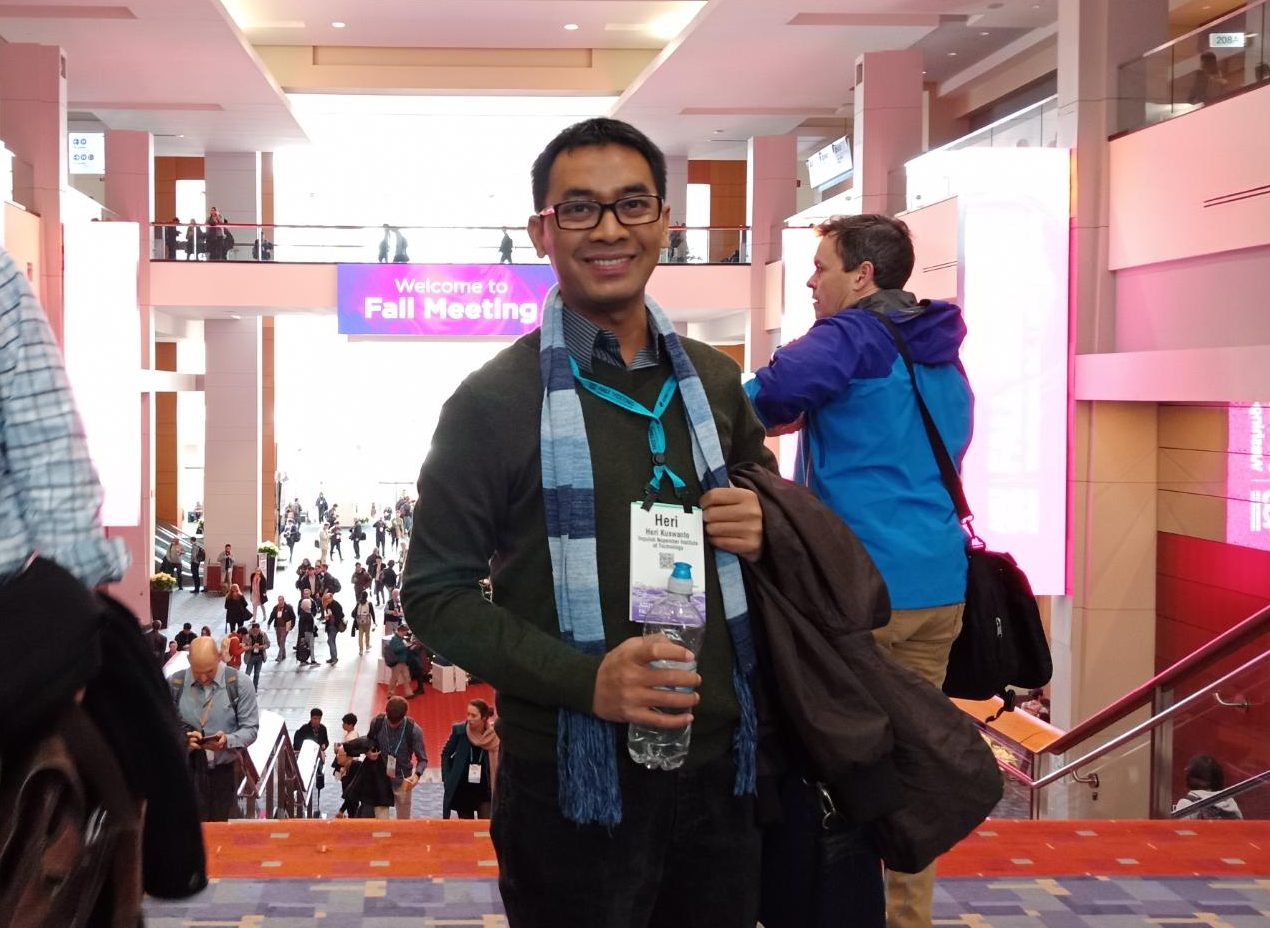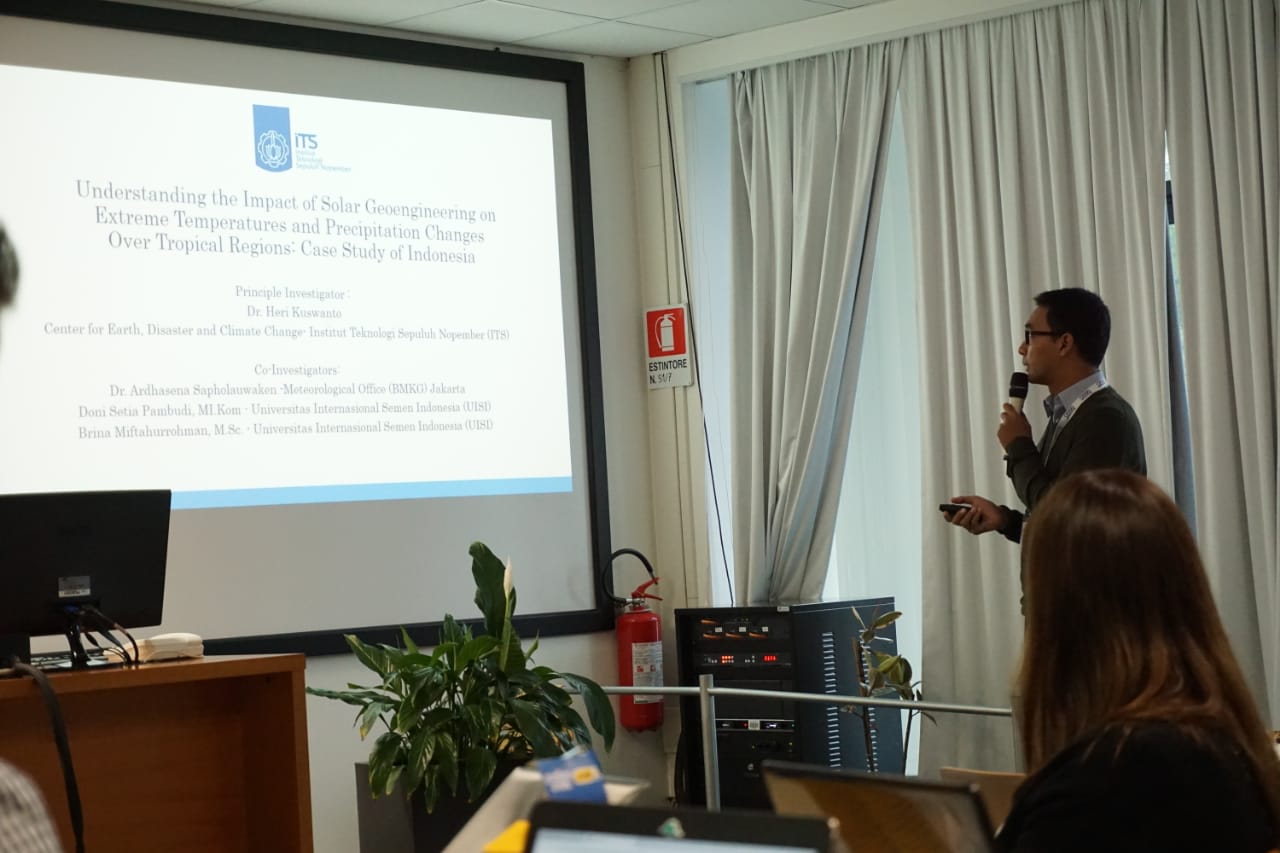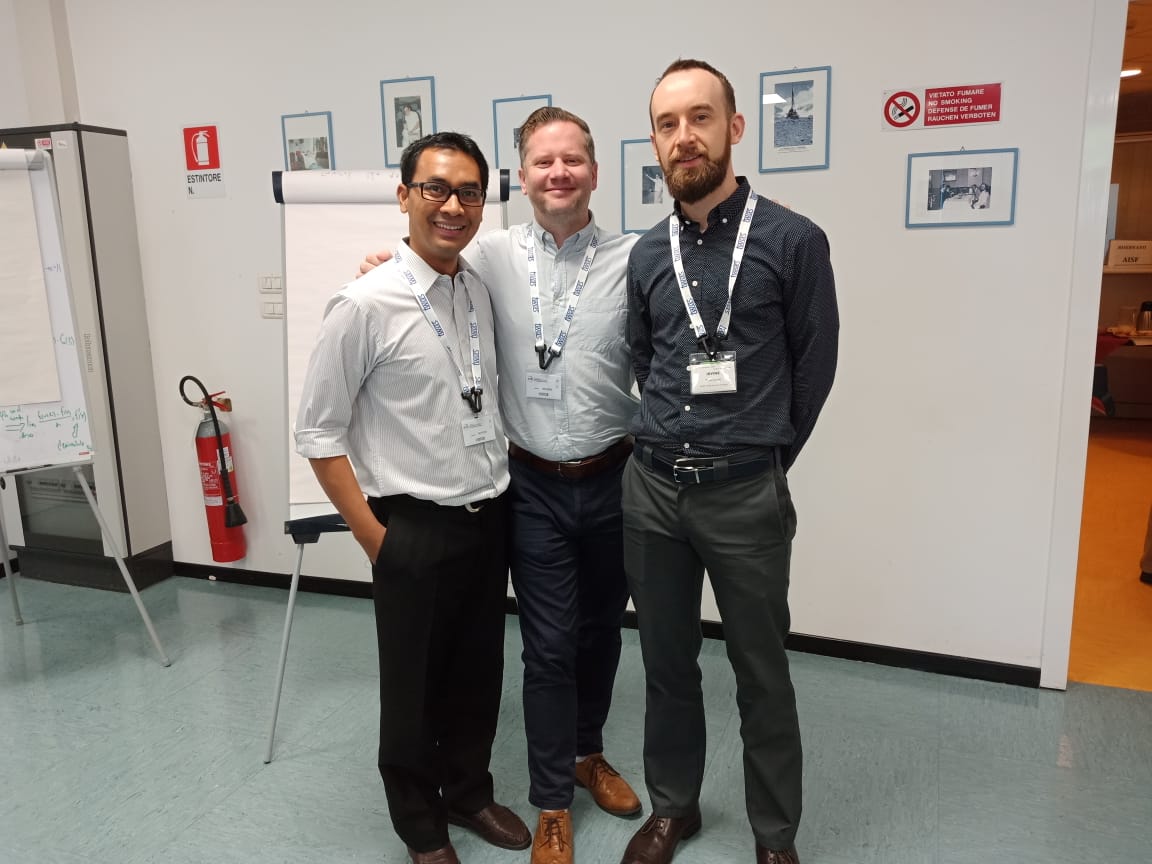ITS Scientist Examine the Impact of Solar Radiation Geoengineering

Dr rer pol Heri Kuswanto MSi
ITS Campus, ITS News – Research on Solar Radiation Management (SRM) or solar geoengineering is being intensively carried out by scientists in several developed countries in the world. However, the impact of the SRM has not been seriously studied. Based on that, one of the scientists from the Institut Teknologi Sepuluh Nopember (ITS) Surabaya, Dr. Reri Pol Heri Kuswanto M.Si, will be one of the first researchers in the world to carry out research on the impact of the SRM Geoengineering.
The Head of the ITS Statistics Department’s Postgraduate Program explained this project aims to study the impact of SRM. Its aspects include changes in temperature and extreme rainfall. More specifically, the project will investigate how temperature and rainfall will change after the implementation of SRM in the future.
“Our team will also examine the Heat Stress Index, which is the ability limit of certain living things to receive the stresses rather than hot weather,” said the man who is familiarly called Heri. The Indonesian team headed by Heri consists of two young lecturers from the Universitas Internasional Semen Indonesia (UISI) who are also ITS alumni and one researcher from the Meteorology and Geophysics Agency (BMKG).
To note, SRM itself is a very controversial idea by reflecting on some of the sunlight to keep away from earth, reducing the risk of climate change on earth. SRM is done by blocking sunlight to cool the earth, for example by spraying reflective particles in the atmosphere.
Unfortunately, according to Heri, it still has the potential that can be dangerous. “If this can be done safely, this technology will be a fast way to reduce some of the risks of climate change that are facing the world, where the world is trying to reduce greenhouse gas emissions,” he said.
Heri said that he was very proud because the project the team was working on was also the first research project in Indonesia. “There is very little knowledge about SRM here (Indonesia, red) and I hope we can start a broader discussion about the risks and benefits,” said the bespectacled man.

Dr. Heri Kuswanto while presenting his research plan in front of SRM Experts and other teams at the Research Planning Workshop in Italy
Doni Setia Pambudi, one of the researchers from UISI said that Indonesia is very vulnerable to environmental changes caused by global warming. “We need to think about other efforts to handle it, one of which is SRM geoengineering, and I want to know more about its impact,” he said.
The research conducted by his team, according to Heri, is one of eight projects awarded by the DECIMALS (Developing World Impact Modeling Analysis for SRM) Fund funded by The World Academy of Science (TWAS) and UNESCO.
Heri explained, great uncertainty about the benefits and losses that could be caused by the SRM also has the potential to provoke international tensions. Especially developing countries that are the topic of conversation of this SRM impact. Given that developing countries are often less resilient to environmental changes and are very vulnerable to the effects of global warming. “Of course it means that they (developing countries, red) will be able to become the luckiest or even the most disadvantaged,” he added.
Heri emphasized that this research was not in order to support SRM Geoengineering. However, it will prove scientifically whether the SRM will have a positive or negative impact. “It will later become the basis of whether SRM can be applied in the future or not,” said the doctoral graduate from Hannover University, Germany.
Heri said that the research group from ITS would not work alone. Through DECIMALS, they will coexist with teams from Argentina, South Africa, Ivory Coast, Fiji, Bangladesh, Iran and with several other SRM experts. “Hopefully, our work can be published at the end of 2020,” he concluded.
Meanwhile, Andy Parker, the project director of The Solar Radiation Management Governance Initiative (SRMGI) in his press release expressed his pride that the DECIMALS Fund could support Dr. Heri Kuswanto and his team. Because they explored how SRM had an impact on Indonesia. “As the first SRM project ever in Indonesia, this groundbreaking project will teach us more about how temperature and extreme rainfall can be affected by solar dimming and will start wider talks about SRM research and it’s governance in Indonesia, “He said. (sof/ITS Public Relation Officer)

Dr Heri Kuswanto (left) with Andy Parker (center) and SRM expert Peter J Irvine (right) from Harvard University while attending an SRM impact research workshop in Italy.
Related News
-
Supporting the Development of Material Processes, ITS Professors Utilize Biomass Waste
ITS Campus, ITS News — Innovation in material processes continues to develop to support society’s need for environmentally friendly
December 19, 2018 12:12 -
ITS Professor Ideas for Bio-Corrosion Control in Marine Structures
ITS Campus, ITS News — Coastal and offshore buildings interacting directly with seawater trigger damage, including bio-corrosion. If not
December 19, 2018 12:12 -
ITS Launches the First Marine Floating Solar Power Plant Prototype in Indonesia
ITS Campus, ITS News — Institut Teknologi Sepuluh Nopember (ITS)‘s commitment in realizing the energy transition is getting serious.
December 19, 2018 12:12 -
Targeting Champion, Bayucaraka ITS Launches Flying Robot Innovation
ITS Campus, ITS News – The Bayucaraka team at Institut Teknologi Sepuluh Nopember (ITS) has launched four new flying
December 19, 2018 12:12
